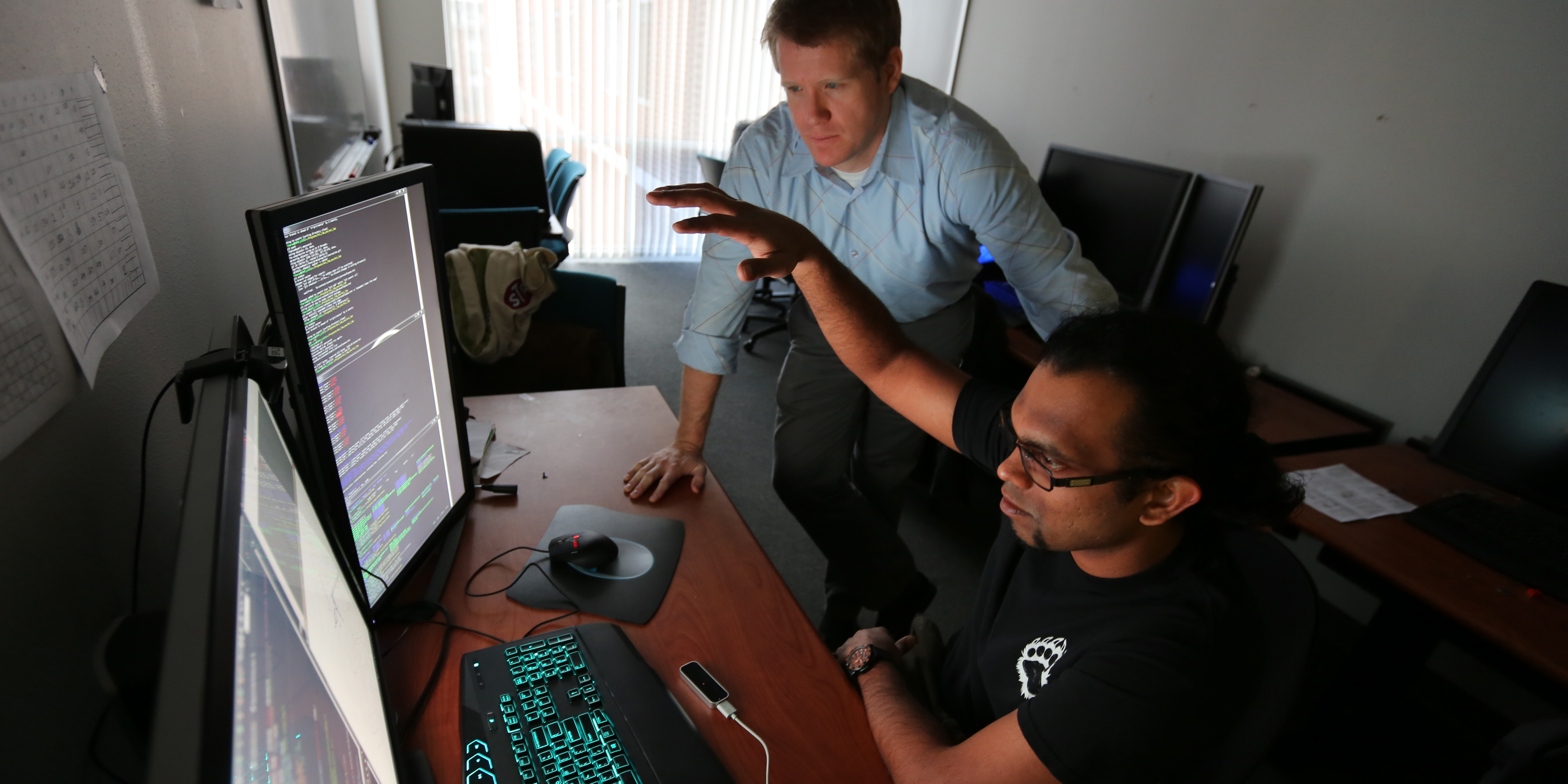Baylor prof’s family inspires research to relieve chronic pain

Remember Christmas morning as a kid — when you’d rush to the tree to see what Santa had left, tear open packages, and play with dozens of new toys the entire day? For Dr. Michael Poor, Christmas morning was pretty much the same — except he didn’t just tear apart the packages. He tore apart the toys.
It’s not that young Michael was destructive; influenced by his father, a renowned developer of animatronic figures, he was just trying to see what made these 1980s-era toys tick. Eventually, the toys would be turned into spare parts for the family’s next robotics project.
Three degrees, a wedding, and many years later, Dr. Poor is an assistant professor in Baylor’s School of Engineering and Computer Science. He specializes in human-computer interaction (HCI) and is researching ways to improve quality of life for people suffering from pain and physical limitations. One of those people? Dr. Poor’s own wife, Lauren.
Herself a lecturer in Baylor’s history department, Lauren suffers from fibromyalgia, a chronic, widespread pain that is exacerbated by long periods of sitting, writing, and using a computer. Motivated by his wife’s condition, Poor and students in Baylor’s HCI Research Group (which he directs) are looking at how interactive technology such as touchscreens and gesture recognition can alleviate the chronic, movement-limiting pain brought on by everyday tasks like pressing a TV remote, clicking a computer mouse, or swiping on a smart phone.
Eventually, Poor believes, this technology can be applied to larger machinery, like cars. “What I find most rewarding is to know that one day, someone will have better access and better experiences interacting with a computer,” he says. “To see the effects of coming up with a solution that never existed before is why I do it.”
Sic ’em, Dr. Poor!

